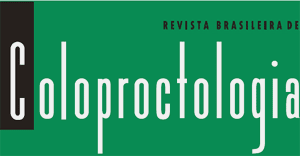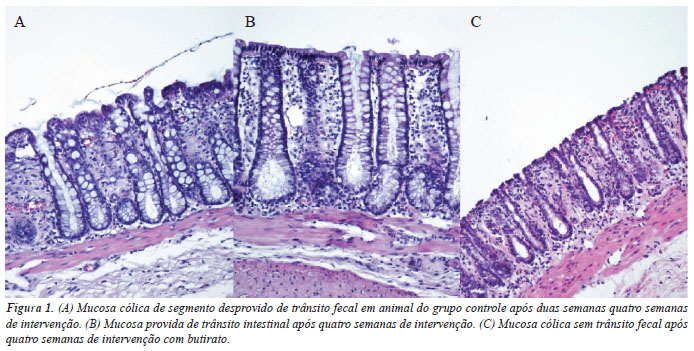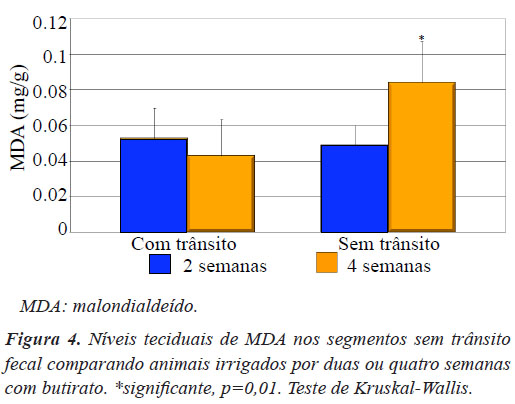The short-chain fatty acids (SCFA) are the main energy substrate for the cells of the colonic mucosa. Diversion of the fecal stream reducing the supply of SCFA is responsible for diversion colitis (DC). Rectal application of butyrate has been demonstrated effective in the treatment of the disease. So the aim of this study was to evaluate the levels of lipid peroxidation in the colon mucosa after application of butyrate in model of DC. Twenty-six rats were submitted to proximal colostomy and distal mucous fistula. The animals were divided into two groups according sacrifice carried out in two or four weeks. Each group was divided into two subgroups according to intervention with saline solution or butyrate. The diagnosis of colitis was established by histopathology and the levels of lipid peroxidation by tissue levels of malondialdehyde (MDA). We used the Mann-Whitney and Kruskal-Wallis, establishing a significance level of 5% (significant with p<0.05). After two weeks, the levels of MDA were lower in the segments without fecal stream of animals irrigated with butyrate (p=0.006), but after four weeks were similar (p=0.08). In the colon without fecal stream irrigated with butyrate, MDA levels increased with the time (p=0.02), while in segments with fecal stream MDA not changed. (p=0.86). Butyrate reduces the levels of MDA in the colonic mucosa without fecal stream, after two weeks of derivation. However, the irrigation with the substance is not able to reduce the lipid peroxidation of mucosal cells with increasing time of intestinal exclusion.
colitis; fatty acids, volatile; lipid peroxidation; malondialdehyde; oxidative stress




